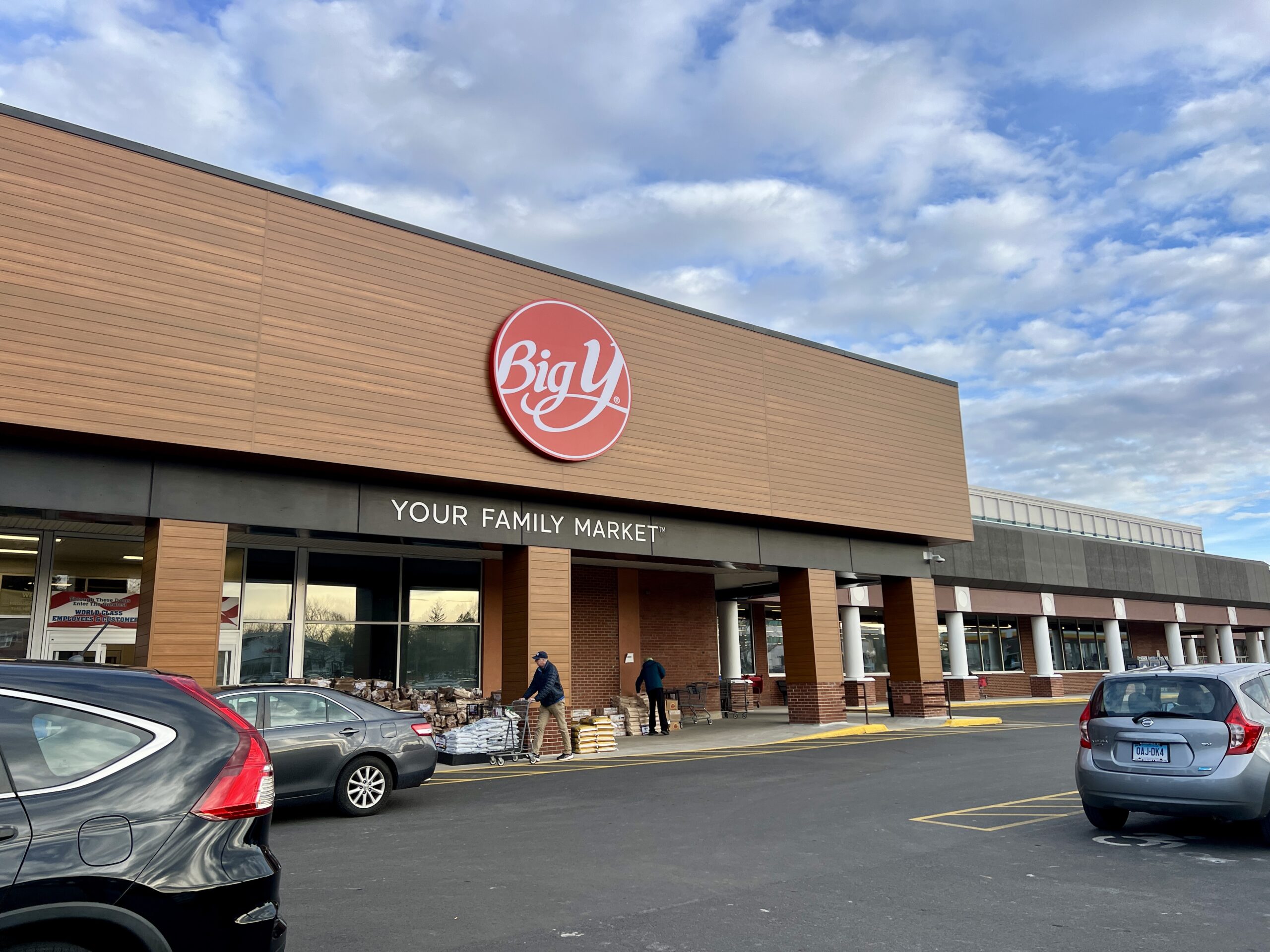Winners and Losers: The 2019 Legislative Session

Audio By Carbonatix

Hartford skyline. Courtesy of CTMirror.org
An assessment of the impact of the 2019 legislative session.
By CT Mirror Staff, CTMirror.org
The 2019 legislative session ended at midnight Wednesday. As usual, some folks came out of the process happy. Others are already plotting their strategies for next year.
The impact of these decisions will take years to determine. But here’s an early assessment of who came out ahead and who didn’t.
Winners
Cities and towns: The state budget for the fiscal year that begins July 1 slightly increases the $2.3 billion in aid that cities and towns get each year. The education grant program that accounts for most of the state’s municipal aid will rise by 2 percent next year. And Gov. Ned Lamont’s plan to send some towns a bill to help cover teacher pension costs got shelved.
State employees: After granting concessions in 2009, 2011, and 2017, unionized state employees were asked by Lamont to accept new limits on the annual inflation increase for their pensions. They declined that request.
First responders: Police, firefighters, and other medical responders coping with lingering post traumatic stress disorder would be eligible for workers compensation coverage if Lamont signs the bill overwhelmingly approved by the General Assembly. Legislators have been trying to resolve this issue since the December 2012 shooting deaths of 26 children and staff at Sandy Hook Elementary School. Competing concerns came from unions representing first responders and the municipalities that must pay the benefits.
Minimum wage workers: Connecticut’s $10.10 minimum wage will rise to $15 over four-and-a-half years. While advocates say this is an overdue lift for low-wage workers, small businesses say this is an ill-considered blow in a state that has yet to fully recover from the Great Recession of 2008.
LBGTQ residents: The legislature overwhelmingly endorsed a measure to ban the so-called gay panic defense, a legal strategy that asks a jury to find a victim’s sexual orientation or gender identity is to blame for a defendant’s actions. It has been invoked in crimes in Connecticut.
Sick workers: Employees will soon be able to take 12 weeks of paid leave if they or a member of their family are ill. The legislation passed narrowly by the General Assembly has the governor’s support.
School choice: After years of flat funding of magnet schools, these regional schools that aim to offer integrated classrooms for minority city youth will receive a 2 percent boost in state aid. Both magnet and charter schools also received increased funding so more students can enroll.
Teachers/School Nurses: Children 6 and older will now be allowed to apply their own sunscreen at school before heading out to the playground. Bonus: They will even be allowed to bring the sunscreen to school without a doctor’s note.
CT motorists: The governor’s proposal to put tolls on certain highways in Connecticut to help pay for major transportation improvements never even made it to a vote. But it’s not over yet – the issue is expected to be resurrected during a special legislative session this summer. And transportation and transit advocates rightly note that this might ultimately not be win if highways continue to deteriorate.
Community college students: The legislature endorsed a plan to provide cost-free community college to first-time students regardless of their income starting in the fall of 2020.
The environment: Connecticut residents have until July 1, 2021 to convert to using reusable shopping bags before plastic bags are banned under legislation passed this session. In the meantime, consumers will pay 10 cents for each single-use plastic bag starting Aug. 1.
Losers
Transparency: A foundation established to oversee the dispersement of $100 million in taxpayer money and up to $200 million in private investments to Connecticut’s public schools will be exempt from key ethics and public disclosure rules. The provision was included in the new two-year state budget.
Non-profit social services: Community-based services which received a modest rate hike this past year will keep that funding in the new budget. But their request for another rate increase – about 5 percent – to be funded with $100 million out of this year’s anticipated budget surplus was denied.
Pot smokers: Attempts to legalize recreational marijuana stalled following fierce opposition from some legislators and black and Latino faith leaders. The bill also would have set up a path to erase the criminal records of those with low-level drug convictions. Democratic proponents have pitched a fallback: Placing the issue on the ballot in the form of a constitutional amendment, though a bill that would allow the maneuver would have to wait until next year.
Inmates and their families: A measure that would have made prison phone calls free for inmates’ family members cleared two key committees, but never made it to a vote in the House or Senate. The bill drew substantial support from prisoners’ loved ones, who pay hefty fees for the calls. One advocacy group told lawmakers that a 15-minute call costs about $4. Connecticut hauled in $7.7 million from the calls last fiscal year.
Consumers: Legislators eliminated sales tax exemptions on several services, raised the rate on digital downloads from 1 percent to 6.25 percent, and imposed a 1 percent sales tax surcharge on restaurant food and other prepared meals.
Small businesses: While all businesses benefit from the repeal of the entity tax, a $250 fee paid once every two years, and other tax credit changes will cost small and mid-sized business more than $50 million annually.
Young smokers: The legal age to purchase tobacco products in Connecticut will soon go from 18 to 21, following passage of a bill mandating the change. Businesses flouting the law can be fined up to $300 and subsequent offenses can reach up to $1,000. Tobacco use remains the leading cause of preventable deaths in the state. Lamont has pledged to sign the bill.
Climate Change: After eight hours of debate on two separate days on whether climate change is related to human activities or not, the House voted to codify a requirement in the state’s science standards that schools teach about climate change. But the bill never made it to the Senate floor. Its chief proponent, Rep. Christine Palm, D-Chester, says it will be back next year.
School Regionalization: At the start of the legislative session, Gov. Ned Lamont provoked the ire of parents and educators around the state with a bill that would have used carrots as well as sticks to prod small school districts into sharing services. Lawmakers also proposed similar kinds of regionalization plans. But after residents swarmed the Capitol protesting all of the plans, the bills were pared back, or died, one by one. “No piece of it left,” Betsy Gara, executive director of the Council of Small Towns said late Wednesday night.
Health reform advocates: A watered down public option health care proposal cleared the House but stalled out in the Senate. The final bill, watered down after weeks of debate, would have required health providers to submit annual reports on the prices they impose and the payments they receive, with the aim of keeping costs down. It also would have allowed state officials to seek permission from the federal government to import drugs from Canada, and enabled them to pursue a reinsurance waiver.
Pro-choice advocates: A measure that prohibits deceptive advertising practices by so-called crisis pregnancy centers won passage in the House, but failed to come up for a vote in the Senate. The bill would have halted misleading advertising on billboards, buses, brochures or websites. Critics say staff at the faith-based centers sometimes pose as medical professionals to lure women and hand out misleading information about abortions. The bill would have given the state Attorney General’s office the power to seek a court order to stop the deceptive practices.
Pro-vaccine officials: A contingent of lawmakers sought to repeal Connecticut’s religious exemption on vaccines amid a sharp increase in the number of measles cases reported nationwide. The idea faced an outpouring of opposition, and legislators ultimately shelved it until next year.
Reprinted with permission of The Connecticut Mirror.
Like what you see here? Click here to subscribe to We-Ha’s newsletter so you’ll always be in the know about what’s happening in West Hartford!



